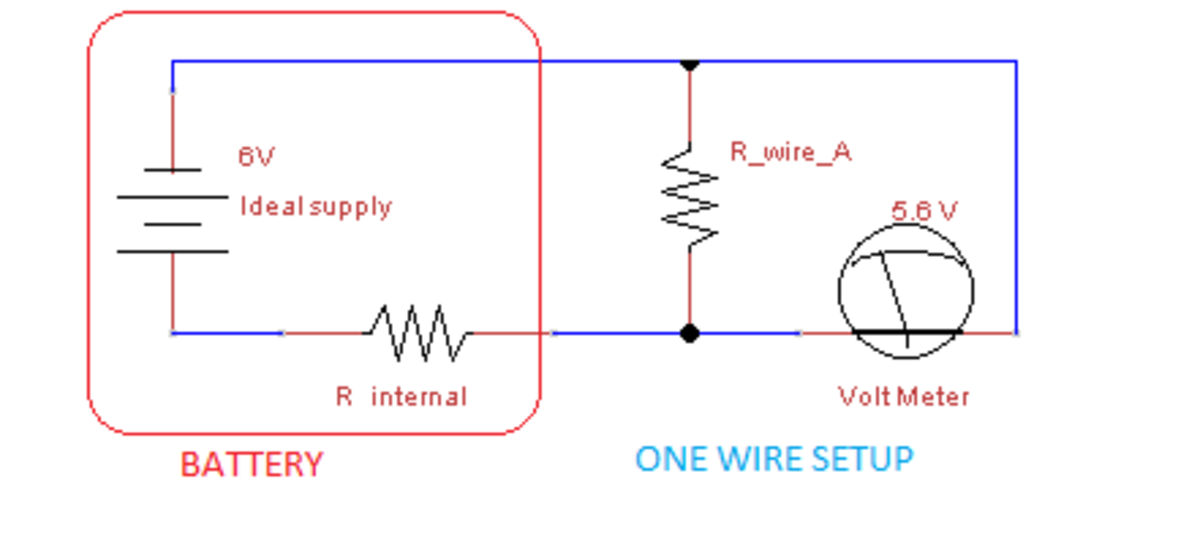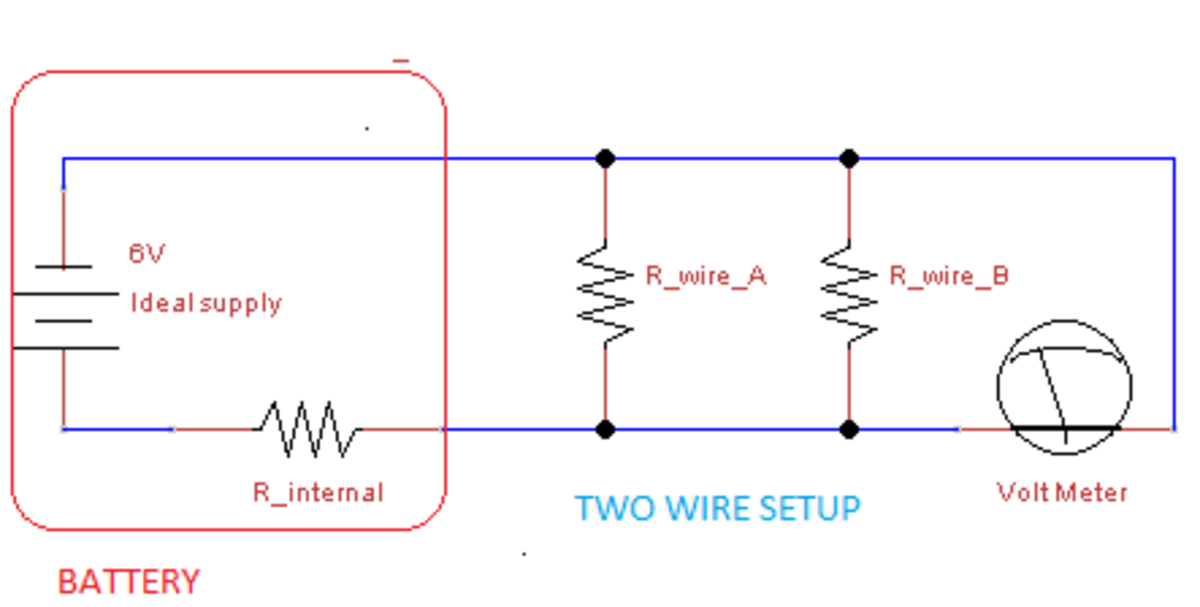Don't try experimenting it
The voltage between the terminals of a battery is . When a wire is connected across its terminals it falls to . If one more identical wire is connected between the terminals , then it will fall to
This section requires Javascript.
You are seeing this because something didn't load right. We suggest you, (a) try
refreshing the page, (b) enabling javascript if it is disabled on your browser and,
finally, (c)
loading the
non-javascript version of this page
. We're sorry about the hassle.
For the purposes of calculations an ideal voltage source in electrical series with an internal resistor can be substituted for an actual battery. In a battery there is an internal resistance that is a result of the construction of the battery and cannot be separated from the voltage source.
In a series circuit, the current that flows through each of the components is the same, and the voltage across the circuit is the sum of the individual voltage drops across each component
Note; the voltmeter is assumed to have a vey high impedance and therefore is not a factor in the calculations
Ohms law I=V/R. or V=IR
Setup with one wire.
V s u p = V R i n t + V R w i r e A V R i n t = 6 − 5 . 6 = 0 . 4 V I R i n t = I R w i r e A R i n t V R i n t = R w i r e A V R w i r e A R w i r e A R i n t = 0 . 4 5 . 6 = 1 4 R i n t = 1 4 R w i r e A
Setup with two wires.
Wire A is in parallel with wire B.
R A = R B R A ∣ ∣ B 1 = R A 1 + R B 1 = 2 R A 1 R A ∣ ∣ B = 2 1 R A R A ∣ ∣ B = 7 R i n t
Resistance of the wires A || B are in series with the battery’s internal resistor.
The voltage drop across the internal resistance of the battery + the voltage drop across the two wires in parallel equal 6 volts of the supply.
R t o t a l = R i n t + R A ∣ ∣ B R t o t a l = 8 R i n t R A ∣ ∣ B = 8 7 R t o t a l
The voltage drop is proportional to the resistances.
V t o t a l = V R i n t + V R _ A ∣ ∣ B V t o t a l = V i n t = 6 V V A ∣ ∣ B = 8 7 V t o t a l = 8 7 6 = 5 . 2 5 V